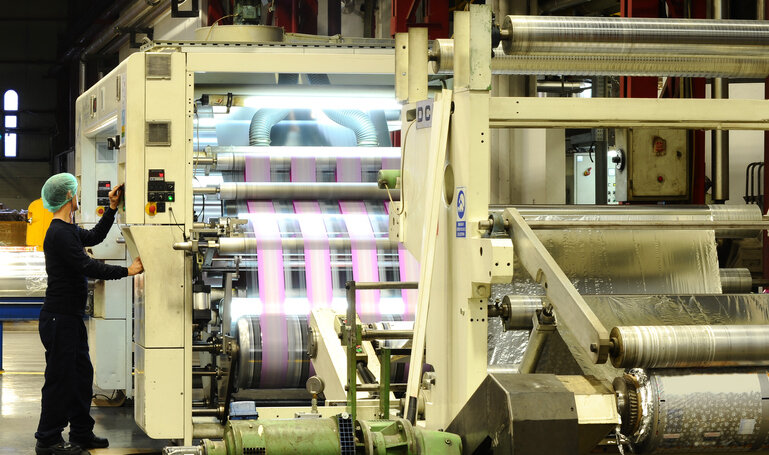The Merger That Could Kill Your Favorite Magazine
Google’s and Facebook’s ever-tightening control over online advertising spending in the United States continues to make it harder for magazine publishers to keep their businesses alive. But publishers’ jobs may soon get even more difficult if the Department of Justice fails to block printer Quad/Graphics’ $1.4 billion bid to buy its only major competitor in the business of printing physical magazines, LSC Communications.
Quad and LSC have argued that the deal is necessary in the face of contracting demand for printed magazines. But the effect of the deal could be to exacerbate the decline in magazine publishing more than would otherwise occur.
Even with the spread of digital publications, many readers, publishers, and advertisers still see value in physical copies. Indeed, some magazines – including Rolling Stone – have recommitted over the last year to printing their product. Yet if the deal is approved, even major publications like Sports Illustrated, National Geographic, and Reader’s Digest will become dependent on Quad/Graphics to print and distribute their product.
Announced in late 2018, Quad’s all-stock purchase of LSC would cap off a wave of consolidation in the printing industry and create a corporation with combined annual sales of approximately $8 billion. Some of Quad’s notable acquisitions include Brown Printing in 2014 and World Color Press in 2010, for $100 million and $1.3 billion, respectively.
LSC, meanwhile, went on its own acquisition spree after being spun off in October 2016 from the conglomerate RR Donnelley & Sons. Over a two-month span in 2017, LSC bought up smaller competitors Publishers Press and Creel Printing.
Royle Printing account executive Dan Weber, who has worked in the industry for over 30 years, including at Publishers Press and Quad, says there were probably six printers ten years ago that could do so-called long-run magazine prints jobs, or jobs involving several hundred thousand or more copies. The Quad-LSC merger “really consolidates all those handfuls into one,” Weber says.
Few magazine publishers were willing to talk to Open Markets on the record. One exception was an industry source who writes under the pseudonym D. Eadward Tree, for the trade journal Publishing Executive. According to “Tree,” “the concentration of printers reduces competition, which drives up printing prices and can stifle innovation.”
Weber agrees. Even with only two printers in business, he says, publishers “could always leverage one against the other to get better pricing or at least maintain a good deal … [One] kept the other honest.”
What makes the deal even more troubling is that a combined Quad-LSC would also control the logistics of distributing print magazines throughout the country. Once a magazine is printed, USPS gives discounts on postage to printers that have the ability to sort and bundle different titles together before sending the magazines through the mail. Until two years ago, a printer could turn to Quad or three other logistics companies to handle such sorting and bundling work. But LSC has bought all three of them over the last two years. Weber says this power over distribution would give Quad-LSC the ability to block smaller printers from competing for publishers’ business.
Promisingly, the Justice Department last month requested additional documents from Quad and LSC for its review of the deal. But industry insiders still fear the government will end up allowing the deal.
John Conley, CEO of the print strategy firm Borderland Advisors notes that, “Any time there’s been a merger that either Quad or Donnelly has done in the last 25 years, the Justice Department has always ruled in favor.” He says that’s because the antitrust enforcers don’t understand the difference between the printing of magazines, catalogs, directories, business forms, labels, or legal documents. They put all “into the same pot,” he says, then conclude that any one deal amounts only to “a small part of a big pot.”
Tree agreed about the Department of Justice’s past approach to deals in the industry. It’s “like saying that Ford, Southwest Airlines, Uber, and Canadian Pacific are all in the transportation industry,” he says. “It’s true, but irrelevant to competition” for the business of high-quality magazines, he says.
If enforcers ever do look at individual markets, they shouldn’t just stick to the magazine industry. Quad and LSC are also the two biggest printers of books, together bringing in $1 billion more in sales than the prospective conglomerate’s next closest competitor.


